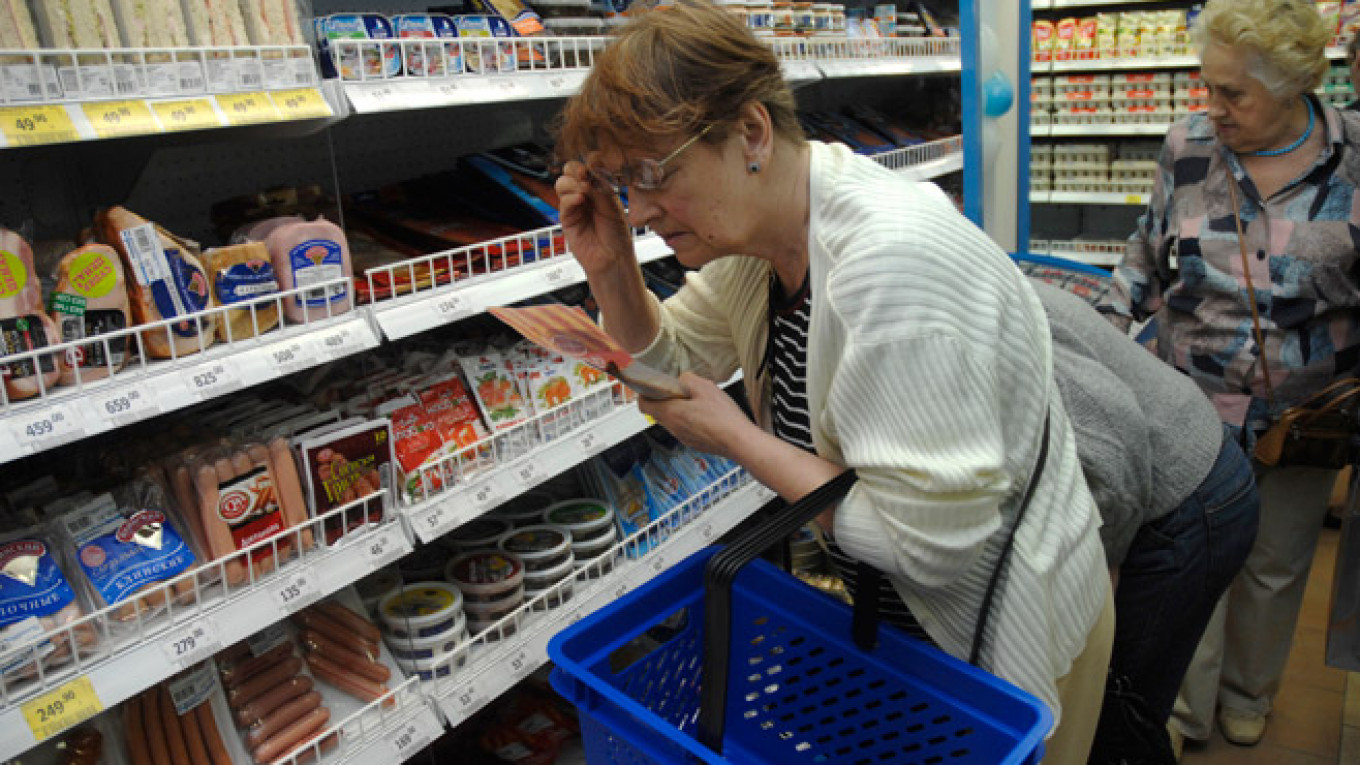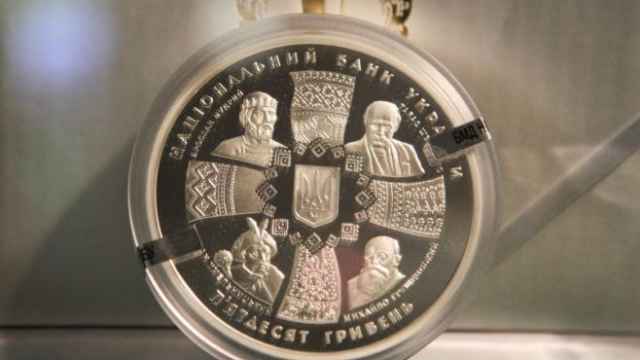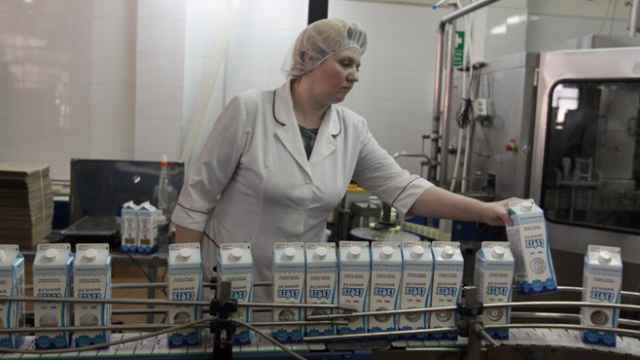Inflation in Russia soared above 11 percent at the end of 2014 as the value of the Russian ruble plummeted, and economists say the worst is still to come.
Preliminary data from federal statistics agency Rosstat show inflation hitting 11.4 percent for the year, propelled by the one-two punch of Russia's ban on a range of Western food imports and the steep devaluation of the national currency.
Russia's Central Bank had early in the year set an inflation target of 5 percent — a not unreasonable goal at the time, given inflation of 6.5 percent in 2013 and 6.6 percent in 2012.
Inflation accelerated in the second half of the year after Russia in August banned some food imports from countries that had imposed sanctions on Russia over its meddling in Ukraine, forcing retailers and distributors to abruptly build new supply chains.
The price of food products rose 15.4 percent last year, according to Rosstat, while the cost of all other products rose an average of 8.1 percent.
The situation was severely aggravated late in the year by a steady plunge in the price of oil, one of Russia's main exports, sending the Russian ruble hurtling off the rails in December.
In the week beginning Dec. 16, the day the ruble nosedived to a staggering low of 80 to the U.S. dollar before rebounding to less than 68, weekly inflation accelerated to 0.9 percent — the highest rate recorded since Rosstat began publishing data on weekly inflation in 2008, according to news agency Interfax.
The ruble has regained some of its value, but at 61.42 to the U.S. dollar at market close on Friday, the Russian currency is still down 46 percent since this time last year, and economists expect the rising cost of imports to continue to stoke inflation for months to come.
Research firm Capital Economics forecast in a report Friday that inflation will peak at more than 15 percent year-on-year in 2015. In another report, ratings agency Fitch said inflation will slow to 8.5 percent by the end of the year.
A Message from The Moscow Times:
Dear readers,
We are facing unprecedented challenges. Russia's Prosecutor General's Office has designated The Moscow Times as an "undesirable" organization, criminalizing our work and putting our staff at risk of prosecution. This follows our earlier unjust labeling as a "foreign agent."
These actions are direct attempts to silence independent journalism in Russia. The authorities claim our work "discredits the decisions of the Russian leadership." We see things differently: we strive to provide accurate, unbiased reporting on Russia.
We, the journalists of The Moscow Times, refuse to be silenced. But to continue our work, we need your help.
Your support, no matter how small, makes a world of difference. If you can, please support us monthly starting from just $2. It's quick to set up, and every contribution makes a significant impact.
By supporting The Moscow Times, you're defending open, independent journalism in the face of repression. Thank you for standing with us.
Remind me later.






